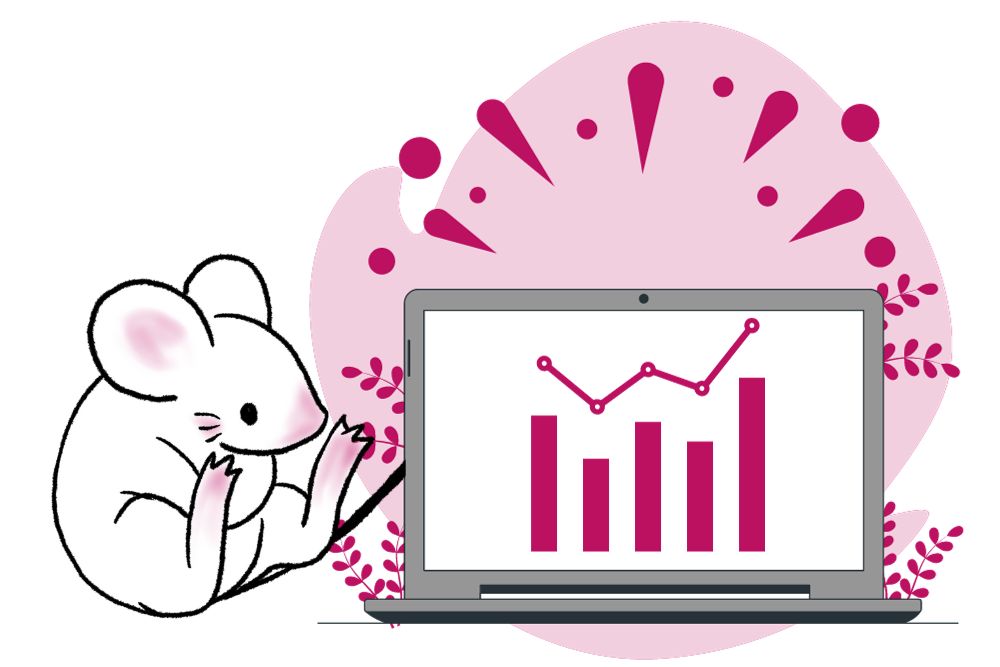In today’s digital age, data is a goldmine waiting to be explored. Marketers have access to vast amounts of information about their customers, and understanding how to harness this data can be the key to unlocking marketing success.
That’s where data analytics comes into play. In this blog, we will demystify data analytics for marketers, explaining what it is, why it’s important, and how it can be used to make informed decisions that drive business growth.
What is Data Analytics?
Data analytics is the process of examining, cleaning, transforming, and interpreting data to discover valuable insights, patterns, and trends. It involves the use of various statistical and mathematical techniques to make sense of complex datasets. Marketers and advertising agencies use data analytics to gain a deeper understanding of their target audience, evaluate the performance of marketing campaigns, and optimise strategies for better results. They include tools such as Google Analytics 4 and social media platform analytics.
Why is Data Analytics Important for Marketers?
Customer Insights: Data analytics allows marketers to gain a 360-degree view of their customers. By analysing demographic data, purchase history, online behaviour, and more, they can create customer personas and tailor marketing efforts to specific audience segments.
Performance Measurement: Marketers can assess the success of their campaigns by tracking key performance indicators (KPIs). Analytics can provide real-time data on click-through rates, conversion rates, bounce rates, and other important metrics to gauge the effectiveness of marketing efforts.
Competitive Analysis: Analysing industry trends and competitor data can help marketers stay ahead of the game. By benchmarking their performance against competitors, marketers can identify areas for improvement and new opportunities.
Personalisation: Data analytics empowers marketers to create highly personalised marketing campaigns. By leveraging customer data, marketers can send targeted messages, recommend products, and offer promotions that are more likely to resonate with individual customers.

How Marketers Can Use Data Analytics
Segmentation: Segmenting your audience based on their behaviour and preferences allows for personalised communication. For instance, an e-commerce company could segment customers by shopping history and send tailored product recommendations. Whilst an education company could segment students by course participation.
A/B Testing: Marketers can use A/B testing to compare different versions of a marketing campaign and determine which performs better. This method helps refine marketing strategies for maximum impact.
Predictive Analytics: Predictive analytics uses historical data to forecast future trends. Marketers can anticipate customer behaviour, sales trends, and market shifts. This enables proactive decision-making.
Content Optimisation: Analysing user engagement data helps marketers understand what type of content resonates with their audience. This information can be used to fine-tune content strategies and create more compelling and shareable content.
ROI Analysis: Marketers can calculate the return on investment (ROI) for various marketing activities. This insight is invaluable for optimising marketing budgets and channel allocation.

How to Implement Tracking for Digital Marketing Campaigns
Define Your Goals and KPIs: Before you can start tracking, you need to establish clear objectives and key performance indicators (KPIs) for your digital marketing campaign. What are you trying to achieve? Is it increased website traffic, lead generation, e-commerce sales, or brand awareness? Your goals will shape the tracking strategy.
Choose the Right Tools: Select the tracking tools that best align with your campaign’s objectives. Here are some popular options:
- Google Analytics: Ideal for tracking website traffic and user behaviour.
- Google Tag Manager: Makes it easier to manage various tracking codes and scripts.
- UTM Parameters: Used to track campaign performance in Google Analytics and other analytics platforms.
- Email Marketing Software: For tracking email campaign performance.
- Conversion Tracking Codes: Platforms like Google Ads, Facebook Ads, LinkedIn Ads, and X Ads provide codes to track conversions and events on your website.
- Facebook Pixel: Essential for tracking user interactions on your website resulting from Facebook and Instagram activity (eg Meta Pixel-Based Tracking).
- LinkedIn Insight Tag: Essential for tracking user interactions on your website resulting from LinkedIn activity and advertising.
- TikTok Pixel: Essential for tracking user interactions on your website resulting from TikTok activity.
- X Pixel: Essential for tracking user interactions on your website resulting from X activity and X advertising.

Implement Tracking Codes: Once you’ve selected your tracking tools, implement the necessary tracking codes or scripts. This typically involves adding a piece of code to your website’s header or footer. Google Tag Manager can simplify this process by allowing you to manage tracking codes without direct coding.
Set Up Conversion Goals: In Google Analytics, configure conversion goals based on your campaign objectives. These goals might include form submissions, product purchases, or other user interactions. Properly configured goals are crucial for measuring the success of your campaign.
Create UTM Parameters: For each digital marketing channel and campaign, use UTM parameters to tag your URLs. This extra data allows you to track the source, medium, campaign name, and other parameters associated with each link. Google’s Campaign URL Builder tool simplifies this process.
Test Your Tracking: Before launching your campaign, thoroughly test your tracking setup to ensure it’s working correctly. Verify that tracking codes fire as expected, conversion tracking is recording goals, and UTM parameters are passing data accurately.
Monitor and Analyse Data: Once your campaign is live, regularly monitor the data generated by your tracking tools. Analyse user behaviour, traffic sources, conversion rates, and other relevant metrics. Set up custom reports and dashboards in your tracking tools for easy access to important data.
Optimise Your Campaign: Use the insights from your tracking data to make informed decisions and optimise your campaign in real-time. Adjust ad spend, targeting parameters, content, or other elements based on what the data is telling you.
A/B Testing: Implement A/B tests to experiment with different creative, copy, landing pages, and other variables within your campaign. Tracking will help you identify which variations perform better and why.
Regular Reporting: Create regular reports summarising the performance of your digital marketing campaign. Share these reports with your team or stakeholders to keep everyone informed and aligned with your goals.
Continuous Learning: Digital marketing is constantly evolving, and so should your tracking strategies. Stay updated with the latest trends, tools, and tracking options to adapt and improve your campaign performance.
The Potential of Data Analytics
In the world of marketing, data analytics is the key to unlocking the full potential of your strategies. By harnessing the power of data, marketers can better understand their customers, improve campaign performance, and stay ahead of the competition. Remember that tracking is an ongoing process, and continuous learning and optimisation will help you achieve the best results for your digital marketing efforts.
Embracing data analytics is no longer an option but a necessity in today’s data-driven business landscape. As a marketer, make it a priority to invest in data analytics tools, learn how to interpret data effectively, and leverage insights to drive growth and success in your marketing efforts.
Reach out to Digital Squeak so we can create and walk through a data analytics strategy that would work for your company – pippa@digitalsqueak.co.za

Pippa is Digital Squeak’s Founder. In her hunt to balance her passion for digital marketing and her responsibilities as a single mom, she decided that the best solution was to start an agency that not only delivered exceptional service to clients, but provided the team with the freedom they needed to live their lives to the fullest.





